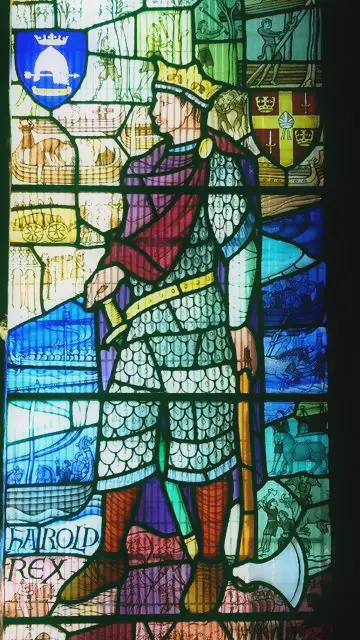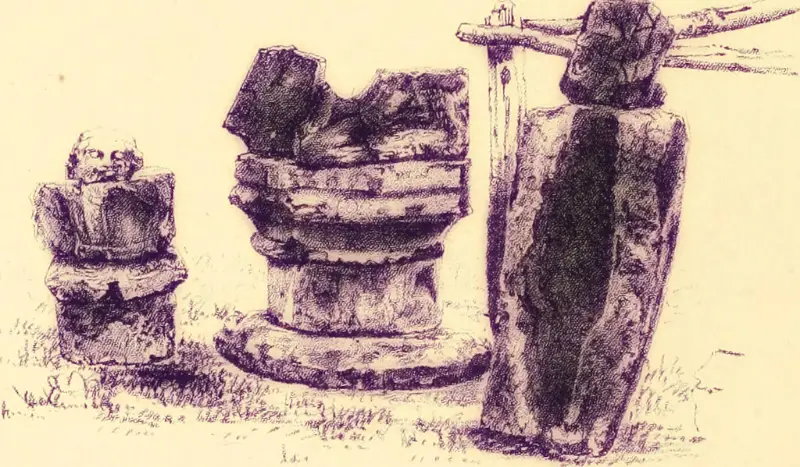The Anglo Saxon kings ruled before the Normans and were the major force behind forming the Kingdom of England.
Who were Anglo Saxon Kings?
Contents
The mighty Anglo Saxons were ancient migratory travellers from the North European regions who later settled in England during the 5th and the 6th centuries.
Scattered in small groups and little kingdoms, the Anglo Saxons formed a single political dominion known as the Kingdom of England during the rule of King Ethelstan in the years between 924 to 939. The last Anglo Saxon King of England Harold II died in the battle of Hastings in the year 1066.
About the Famous Anglo Saxon Kings
In the brutal Dark Ages of the 5th and the 6th centuries, British lands were divided into numerous communities that were inhabited as homelands with roughly defined borders. These communities were looked after by their chieftains.
After the departure of the Roman legions from Britannia in the year 408 AD, these tiny kingdoms had to protect and preserve their lands against migrants and invaders from the Scots, Picts and Germanic tribes.
Thus, by the time period of 650 AD, the British lands were divided into numerous kingdoms ruled by powerful immigrant kings or native chieftains.
Some kingdoms gained supremacy over others such as Northumbria, Lindsey, Mercia, East Anglia, Wessex, and Kent. During the 8th century, small kings and kingdoms of early Anglo Saxon England continued to be included as a part of bigger and powerful kingdoms such as Mercia and Wessex. This was the time when monarchy rule developed during the Old English period.
Later, the danger of invasion by Vikings was the primary reason to unite all English leaders to form the great kingdom of England. It was called ‘Heptarchy’ with kingdoms including Kent, Essex, Sussex, East Anglia, Northumbria, Mercia, and Wessex.
The first Anglo Saxon King of England King Ecgherht or Egbert was the very foremost monarch to enjoy a firm and extensive control all over the Old English lands. He regained his supremacy over Wessex in the year 802 and conquered Mercia in the year 827. Later, his conquest won over all parts of England that fell in the south-side of Humber River.
King Edward Anglo Saxon
Edward the Elder was the successor of Alfred the Great as the Anglo Saxon King from the year 899. Edward experienced political unrest and rebellion from his own cousin, Aethelwold. As the son of Aethelred, Aethelwod claimed his right to the throne.
In 910, he became ruler to Mercia, Wessex and East Anglia. King Edward was loved by the medieval historians, as he was a good ruler. He was said to be the primary destroyer of the Vikings who invaded Southern England and laying basic foundations for the United Kingdom of England.
However, King Edward faced a revolution by the Mercian and Welsh people at Chester and he breathed his last after succeeding in putting off the rebellion. He died on the 17th of July 924 at Farndon, Cheshire.
Anglo Saxon King Alfred
Alfred the Great was the fifth child of Anglo Saxon King Ethelwulf of Wessex, which was located towards the Southern side of river Thames. He became the King as all his elder brothers died in vicious Viking attacks when they were young.
Alfred’s reign was successful as he bravely battled with the Vikings and made peace with them so that both the English and Vikings could co-exist. He was a just ruler who motivated his people and tried to provide security and guidance to them.
Anglo Saxon King of Mercia
The first King of Mercia was Anglo Saxon Offa. He was a powerful ninth century Anglo Saxon king and ruled with an iron hand. His rule from the year 757 to the year 796 was recorded as a period when English subjects thrived and grew prosperous.
Offa was the son of a man named Thingfrith and a great descendant of the Eowa race. He was sworn as King after a long period of civil war conditions. During the civil war, the former ruler Ethelbald was killed and Offa got the throne.
Anglo Saxon Kings Council
The wise council of the historic Anglo Saxon kings of England was known as Witenagemot.
The duties of the council members were to advise the king on all kinds of matters, which he asked for an opinion to them.
The King’s granted lands to the Holy churches and laymen were attested by the council.
The council also helped the king deal in a rightful manner with rebels and others who were suspected of treason.
The council meeting time and other schedules were centred around the king’s timetable
The witan or the council was attended by royal members, nobles, and bishops.
The commune concilum (successor) formed by Anglo-Norman Kings absorbed much of its features
King Arthur Anglo Saxon
A mythological and medieval character King Arthur, he was also the primary head of a kingdom called Camelot. According to historians, it is not very clear if there was ever a real King Arthur. He may have been a fictional figure or a real Roman military leader who stopped a Saxon invasion was back during the fifth or sixth century.
While some historians claim that King Arthur was a glorified and brave British chief who faced the mighty Saxon invaders in the late fifth century.
King Alfred and the Anglo Saxons Michael Wood
Michael Wood, an avid writer, historian, and communicator is quite popular for his famed television series of the 70s decade in the 20th century. His books on history such as ‘The Story of England’ and ‘In Search of the Dark Ages’ were well received by the readers and the critics.
He achieved two major things in the year 2013; firstly he wrote and presented a wondrous documentary named ‘King Alfred and the Anglo Saxons’ (in three separate parts) and secondly, he was appointed at the University of Manchester as a respectable Professor of Public History.
You can search for the documentary King Alfred and the Anglo Saxons to watch online. The Episodes comprise of three parts namely; a) Alfred of Wessex b) Lady of Mercians and c) Aethelstan, the First King of England.
Last Anglo Saxon King of England

Harold II or Harold Godwinson was the last monarch to be crowned as the Anglo Saxon King of England. His reign started from the sixth of January in the year 1066 for a short period of nine months.
He died as a King at a young age of 44 years at the Battle of Hastings by the Norman army of William the Conqueror. Harold II was known to be a skilled army general and also a compelling ruler during the Anglo Saxon period.
Anglo Saxon Kings for Kids

English schools have thought it worthy to add the timeless and historic period of Anglo Saxon times in the study book syllabus for children. In order to know the rich and interesting history of their land, British children have been introduced to such topics to help them understand Old English period.
It was an era wherein the Anglo Saxons arrived in England after wiping out the Roman rulers in the year 410. There were several small Anglo Saxon kingdoms spread across England that were eventually brought together as one powerful Kingdom of England.
Anglo Saxon Kings and Queens of England ruled the land from the 9th century until the 11th century. They are also known as the first Kings of England that began with the rule of King Egbert in 802. The most popular Anglo Saxon kings were Canute the Great and Alfred the Great.
FAQs
Who was the first King of the Anglo Saxons?
Alfred the Great was the original and very first King of the Anglo Saxons. He was crowned King as the ruler of Angles and Saxons. He started ruling Western Mercia. While if you are curious to know who was the first Anglo Saxon king to rule the Kingdom of England, it is King Egbert.
What had actually happened to the last Anglo Saxon King Harold II?
According to historian notes, King Harold II was brutally killed during the 4th phase of the war with the Norman army at the famed Battle of Hastings. It was late afternoon period on 4th October 1066 when Harold II was killed when he was hit by an arrow in the eye.
Who was the first Christian Anglo Saxon King?
Ethelberht was said to be the first Anglo Saxon King to be converted into the religion of Christianity.